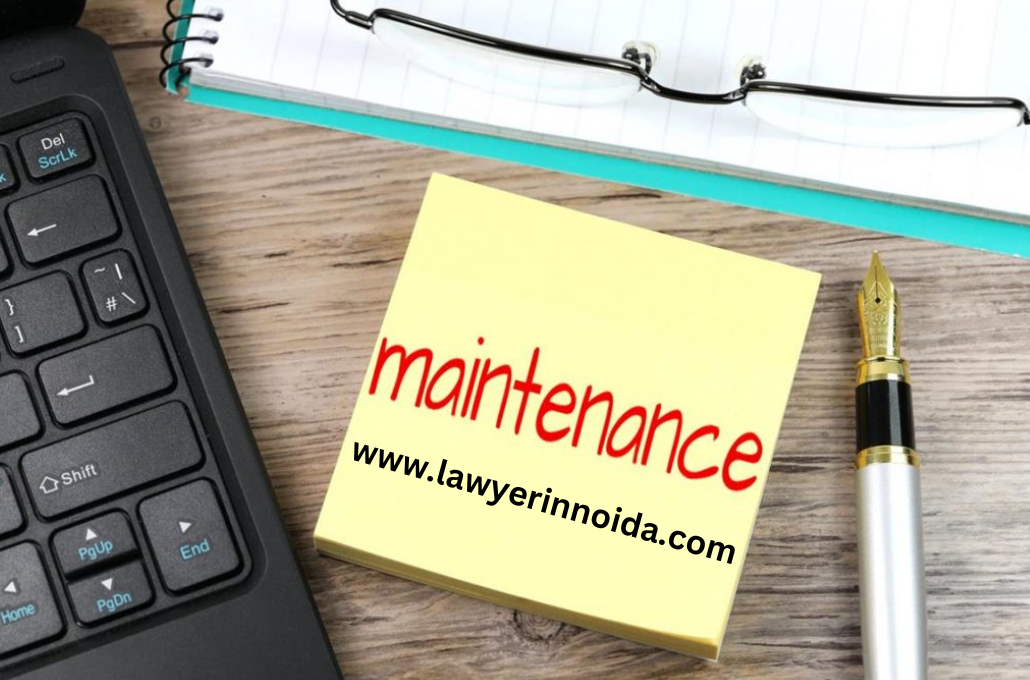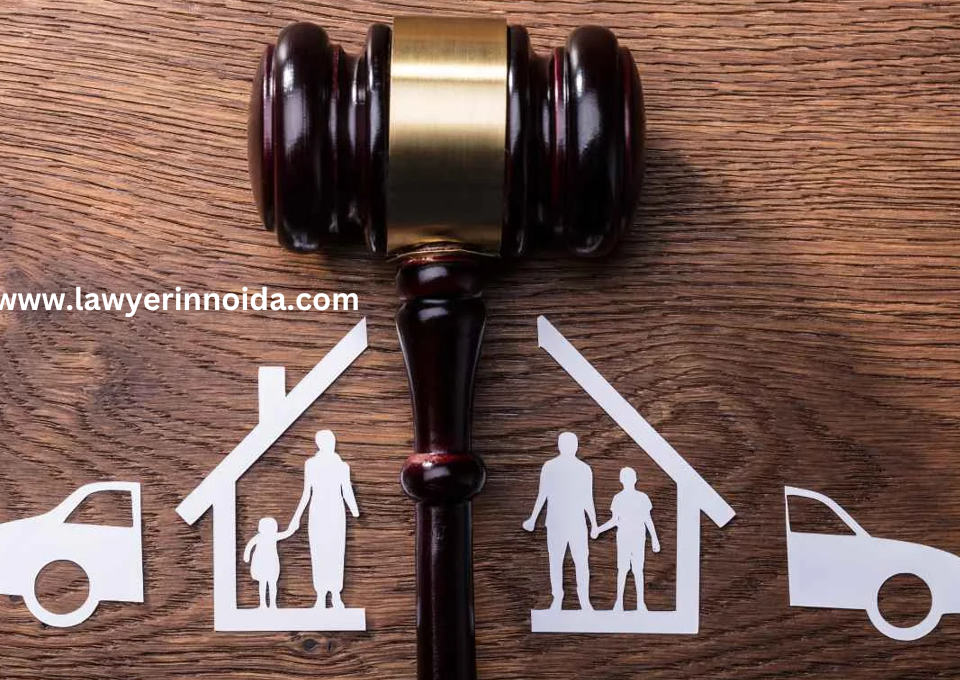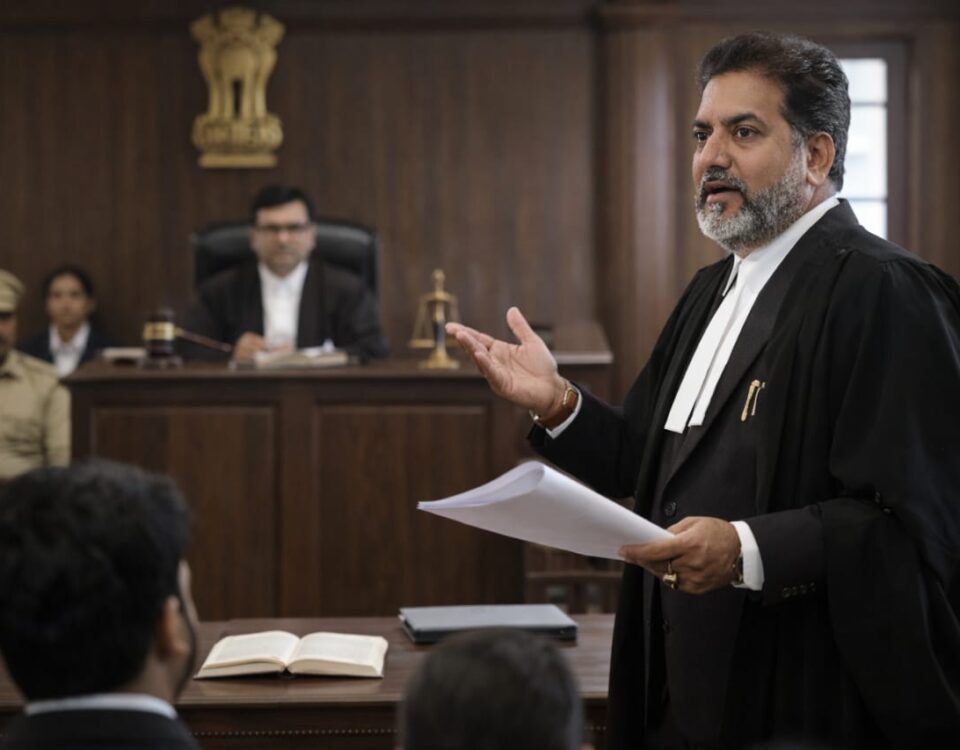
Maintenance of Dependent
Maintenance Case in Noida
Maintenance refers to the financial support that one individual is legally required to provide to another who is dependent on them. This obligation arises in cases where the dependent is unable to sustain themselves due to factors like illness, old age, incapacity to work, or being a parent caring for children. The purpose of maintenance is to prevent financial distress and ensure that dependents receive necessary support when they lack financial independence. In civil cases, maintenance is a key issue in divorce, separation, and custody disputes. It primarily aims to provide financial assistance to those who cannot support themselves due to circumstances beyond their control. This includes spouses, children, and sometimes elderly parents or other relatives. The goal is to maintain the dependent party’s standard of living as close as possible to what they experienced during the relationship, preventing financial instability. Maintenance is governed by various legal statutes that ensure financial responsibilities are fairly distributed. Courts issue legally binding maintenance orders under different family laws to safeguard the financial rights of dependents.
Legal Framework Governing Maintenance
Several legal statutes exist to regulate and govern the provision of maintenance to dependents. These statutes provide a structured process to determine eligibility, assess needs, and establish the financial obligations of the liable party. The most relevant and commonly referred laws are:
- Hindu Marriage Act, 1955: This Act offers provisions for maintenance in cases of divorce, separation, and the dissolution of marriage among Hindus. It covers both interim and permanent maintenance and offers a protective legal structure for spouses who are unable to support themselves post-separation.
- Criminal Procedure Code (CrPC), Section 125: Section 125 of the CrPC deals with maintenance to wives, children, and parents, ensuring that individuals are not left destitute due to neglect by the person legally obligated to support them. It is applicable to all individuals, regardless of religion.
- Domestic Violence Act, 2005: This Act specifically protects women from domestic violence and provides for maintenance and other financial support in situations where women face abuse or neglect. It is designed to ensure that women do not have to suffer financially due to violence in relationships.
- Special Marriage Act, 1954: Governs marriages between individuals of different religions. If such marriages break down, this Act ensures that maintenance claims are made in accordance with the parties' rights.
- Muslim Women (Protection of Rights on Divorce) Act, 1986: This law provides for the protection and maintenance of divorced Muslim women. It ensures that a divorced woman is not left without financial support after the dissolution of marriage.
Each of these legal provisions has its own set of guidelines and rules for how maintenance is determined, who is eligible for it, and under what circumstances it can be requested.
Eligibility for Maintenance
Who Qualifies as a Dependent?Legally, a dependent is defined as someone who relies on another individual for financial support. Dependent individuals generally include:
- Spouses: A spouse is typically entitled to maintenance following divorce or separation, especially if they are unable to sustain themselves independently. Courts usually take into account the financial situation of both the requesting spouse and the one required to pay. For example, if one spouse was primarily responsible for homemaking or childcare and did not earn during the marriage, they may be eligible for maintenance.
- Children: Minor children are always considered dependents and are entitled to maintenance. If one parent is unable to support the children, the other parent may be legally required to provide financial support. In cases where children are over the age of 18 but are physically or mentally incapacitated, they may also be entitled to maintenance.
- Elderly Parents: In cases where parents are elderly or physically incapacitated and unable to support themselves, they may claim maintenance from their children. This law is especially applicable when the parents have no source of income or savings.
- Other Dependents: In some cases, even extended family members like siblings or relatives may qualify for maintenance, particularly if they are financially dependent due to health reasons, old age, or lack of earning capacity. Courts have recognized that maintenance duties are not restricted solely to spouses and children but may extend to others within a family, depending on their dependency.
Conditions for Receiving Maintenance
To qualify for maintenance, certain conditions must be met. These conditions ensure that the claim for maintenance is reasonable and in line with the circumstances of both the dependent and the party obligated to provide support:
- Financial Inability of the Dependent: The dependent must demonstrate that they are unable to support themselves. This may include showing their incapacity to earn due to old age, illness, disability, or being a full-time caregiver for children or a spouse.
- Financial Capacity of the Person Liable to Pay: The person from whom maintenance is being sought must have the financial ability to support the dependent. The court will evaluate the payer’s income, assets, liabilities, and overall financial health to ensure that the maintenance amount does not create undue financial hardship for them.
- Duration and Nature of the Relationship: The longer the duration of a marriage or relationship, the more likely it is that the dependent will be entitled to maintenance, particularly if they were financially dependent on the other party.
- Standard of Living Prior to Separation: Courts usually attempt to preserve the standard of living the dependent was accustomed to before the breakup or separation. If a person had a higher standard of living while married or during a relationship, maintenance is usually intended to reflect that level as closely as possible.
- Health and Age of the Dependent: If the dependent is elderly or incapacitated, courts are more likely to provide maintenance, especially if they cannot work due to physical or mental conditions. In cases of dependent children, the court will also consider factors like educational and medical needs.
How Maintenance is Determined
Factors Influencing the Maintenance AmountThe court uses a variety of factors to determine the appropriate amount of maintenance that should be awarded to the dependent. The court seeks to balance the needs of the dependent with the ability of the payer to provide support. The following factors influence the amount of maintenance:
- Income and Earning Capacity of the Paying Party: The primary factor in determining maintenance is the income of the individual who is responsible for providing financial support. This includes their salary, business income, assets, and any other sources of income. The payer's earning capacity will be taken into consideration, including any opportunities for additional employment or income generation.
- Needs of the Dependent: The financial needs of the dependent play a crucial role in determining the maintenance amount. These needs include essential living expenses such as food, clothing, housing, education (in the case of children), medical costs, and other daily necessities.
- Standard of Living of the Dependent: Courts try to ensure that the dependent’s standard of living remains close to what it was during the relationship. If the dependent was used to a certain lifestyle before the separation, the court aims to ensure that they do not face a sharp decline in their quality of life due to financial hardship.
- Duration and Nature of the Relationship: Longer marriages or relationships generally result in higher maintenance. The court will assess how long the dependent has been financially reliant on the other party. Non-financial contributions, such as raising children or supporting the family in non-monetary ways, are also taken into consideration, especially in divorce cases.
- Health and Educational Needs of the Dependent: If the dependent requires medical care or special education, these needs are factored into the maintenance amount. For children, the costs associated with schooling, extracurricular activities, and health care are included.
- Contributions to the Household: Non-financial contributions, such as homemaking, childcare, and caregiving, are also considered when determining the amount of maintenance. If one spouse or partner contributed significantly to the household in a non-monetary way, this can impact the maintenance amount.

Legal Process for Claiming Maintenance
How to File for MaintenanceTo claim maintenance, the dependent must follow a structured process. The basic steps are:
- Filing the Petition: A petition for maintenance should be filed in the appropriate family or civil court. The petition should clearly outline the details of the relationship, reasons for requesting maintenance, the financial needs of the dependent, and the financial circumstances of the paying party.
- Documentation and Evidence: The petitioner will need to submit supporting documentation. This may include:
- Proof of income (salary slips, bank statements, tax returns)
- Marriage or divorce certificates (as applicable)
- Medical records (if health is a concern)
- Proof of children’s education or dependency
- Financial documents related to assets or property
- Court Hearings: After filing the petition, the court will schedule hearings. Both parties will have the opportunity to present their case. Evidence will be reviewed, and witnesses may be called.
- Interim Maintenance: While the case is being heard, the dependent may request interim maintenance to meet immediate needs. This is temporary support granted while the final order is pending. Courts typically grant interim maintenance when there is an immediate financial need.
- Permanent Maintenance: Permanent maintenance is awarded once the case is concluded. This is usually a fixed amount or can be periodically reassessed based on changes in the financial situation of the payer or the dependent.
Modifications and Enforcement
Modifications to Maintenance OrdersIn cases where there is a significant change in circumstances, the amount of maintenance may be modified. Some circumstances that may lead to modification include:
- Increased Financial Need: If the dependent's needs increase, such as medical bills or educational expenses, the maintenance amount may be adjusted accordingly.
- Change in Financial Status of the Payer: If the payer experiences a financial crisis, such as job loss or business failure, they can apply for a reduction in maintenance payments.
If the payer refuses to comply with the maintenance order, several enforcement mechanisms exist, including:
- Wage Garnishment: The court can order that a portion of the payer's salary or wages be directly deducted and paid to the dependent.
- Contempt of Court: A failure to comply with a maintenance order can lead to contempt of court charges, which may result in fines or imprisonment.
- Attachment of Property: The court may order the attachment and sale of the payer’s property to recover unpaid maintenance.
Conclusion
Importance of Maintenance in Civil CasesThe provision of maintenance is crucial to ensure that vulnerable individuals are not left in a precarious financial situation due to the failure of their spouse, parent, or other responsible party to provide for them. Whether in cases of divorce, separation, or the care of dependent children, maintenance ensures that individuals continue to live with dignity and security, even in challenging circumstances. Courts play an important role in ensuring fair and just outcomes in maintenance cases, and the legal framework in place aims to protect the rights of the dependent party while balancing the needs and abilities of both sides.By understanding the various factors involved, the eligibility requirements, and the processes for seeking maintenance, individuals can better navigate the legal system to ensure that their financial needs are met during challenging times.








